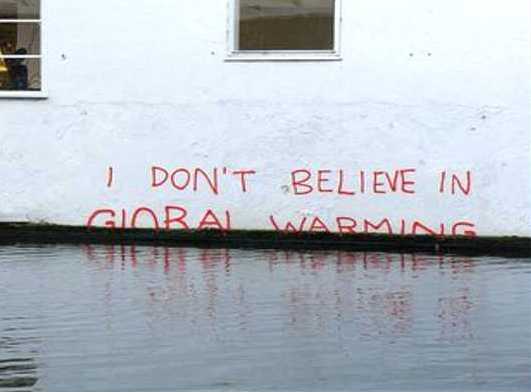Single News
Global climate deal also requires rethink about society
STUTTGART (NNA) – The global climate deal worked out by 195 countries in Paris in December represents historic progress but the realisation of its goals is not possible without restructuring our society at the same time.
This is the view of the climate expert Dr. Otto Ulrich in an interview with the Stuttgart journal for social threefolding “Sozialimpulse”.
On the one hand it was remarkable that after the many conferences which had ended in disappointment there had now been agreement on a common goal to protect the climate, Ulrich said. On the other hand it was just a “starting point for thinking about how we can build a global society and global economy which is ‘carbon neutral’ as it is now termed.”
In the wake of the results of the two-week summit in Paris, nations will endeavour to keep global warming below 1.5°C. In other words, the 2°C target is to be undercut by the end of the century.
Dr. Ulrich is a physical engineer with many years of experience in the aeronautics and space industry and for many years worked on climate and data protections issues in the German Chancellor’s Office, with the EU in Brussels and at the UN.
Decoupling
In his view the negotiations “more or less avoided” the questions concerning the conclusions to be drawn from the postulate of climate justice in the world. Thus the danger existed that “we continue to think of solutions which are in conformity with the system” such as for example “even greater controls of the emissions from chimneys”.
The key element from Ulrich’s perspective is, however, to decouple growth from energy consumption. The climate protection debate had for decades been accompanied by the dilemma that greater quantitative growth at the same time meant more energy consumption. The necessary debate about decoupling these two things had not yet properly taken hold in Germany for example, “even if we are not in the worst position with 24 percent of renewable energies.”
This debate would only make progress globally if “we develop a different understanding of growth”. The fact that countries would have to become carbon neutral in their economies in the future meant that such a new understanding of growth was basically being enforced.
That the link between growth and the fossil fuel economy, on which growth was hitherto largely based, had to be ended was also set out in the agreement negotiated in Paris – even if it was done indirectly through the so-called balance postulate.
Where sources of CO2 emissions cannot or can only partially be removed, such as from cars or cement production, sinks have to be created which balance them out again. A global monitoring system is to be set up for this purpose. Even now already the German Federal Environmental Agency was helping 20 states with the project of establishing national emission monitoring systems.
Transformation
In order to preserve the natural resources of humanity, “all companies and administrations have to pull in the same direction”. Ulrich proposes setting up a “decarbonisation commissioner” along the lines of the “data protection commissioner” and to give that office far-reaching rights to assess companies in accordance with strict criteria.
The latter would then be forced successively to convert their production and services wherever these were a source of CO2. This would lead to an overall transformation in the shape of the economy. The trade unions would also have to make some movement.
Associative forms of economy are well suited to reconciling the economy and ecology with one another, Ulrich thinks. They could develop balancing mechanisms to enable an economy which looks at the whole picture and overcomes management egoism.
“We have to rebuild society to liberate ourselves from our straightjacket – the triangle of climate change, society and carbon. There is no way past that. We built a fossil fuel economy with which we tied ourselves to carbon. That is coming back to bite us today.”
Ulrich also considers the education system as having a responsibility to initiate the process of rethinking. The dimensions of land, work and capital had to be evaluated differently even in terms of their didactic structure and be supplemented by the dimensions of “information” and “climate”. A new understanding of money and work was also required.
Digitalisation
A weakness in the Paris agreement which Ulrich points to in his interview is the small extent to which the CO2 effects of digitalisation are included. All Google search queries in one month together produce the same amount of CO2 emissions as driving a mid-range car for 1.8 million kilometres. In 2020, 15 percent of all emissions will be produced by electronic datacentres and similar facilities.
The climate discussion showed that there had to be creative intervention also in digitalisation. Data protection and the vulnerability of the infrastructure showed that a charta of digital basic rights was required. The speed of digital development was enormous with powerful consequences for life. “We need socially and ecologically compatible forms of digitalisation,” the physicist emphasised. Uncontrolled growth could not continue in this sector either.
“The ecological crisis simultaneously contains a crisis of society,” Ulrich says in conclusion. The same idea had been expressed by Pope Francis in his encyclical Laudato si in which he had looked at the cultural and spiritual self-image of our current civilisation. The ideas of anthroposophy, particularly also social threefolding, could contribute a lot to this debate.
Asked about sceptical objections to the necessity of protecting the climate – including in alternative movements – Ulrich drew attention to the online discussion forum of the Potsdam Institute for Climate Impact Research (PIK) in which 3,000 scientists are involved. There all the studies on the subject which meet scientific criteria were taken into account and there was also engagement with the arguments of the climate sceptics.
END/nna/ung/cva
Item: 160112-03EN Date: 12 January 2016
Copyright 2016 News Network Anthroposophy Limited. All rights reserved.

